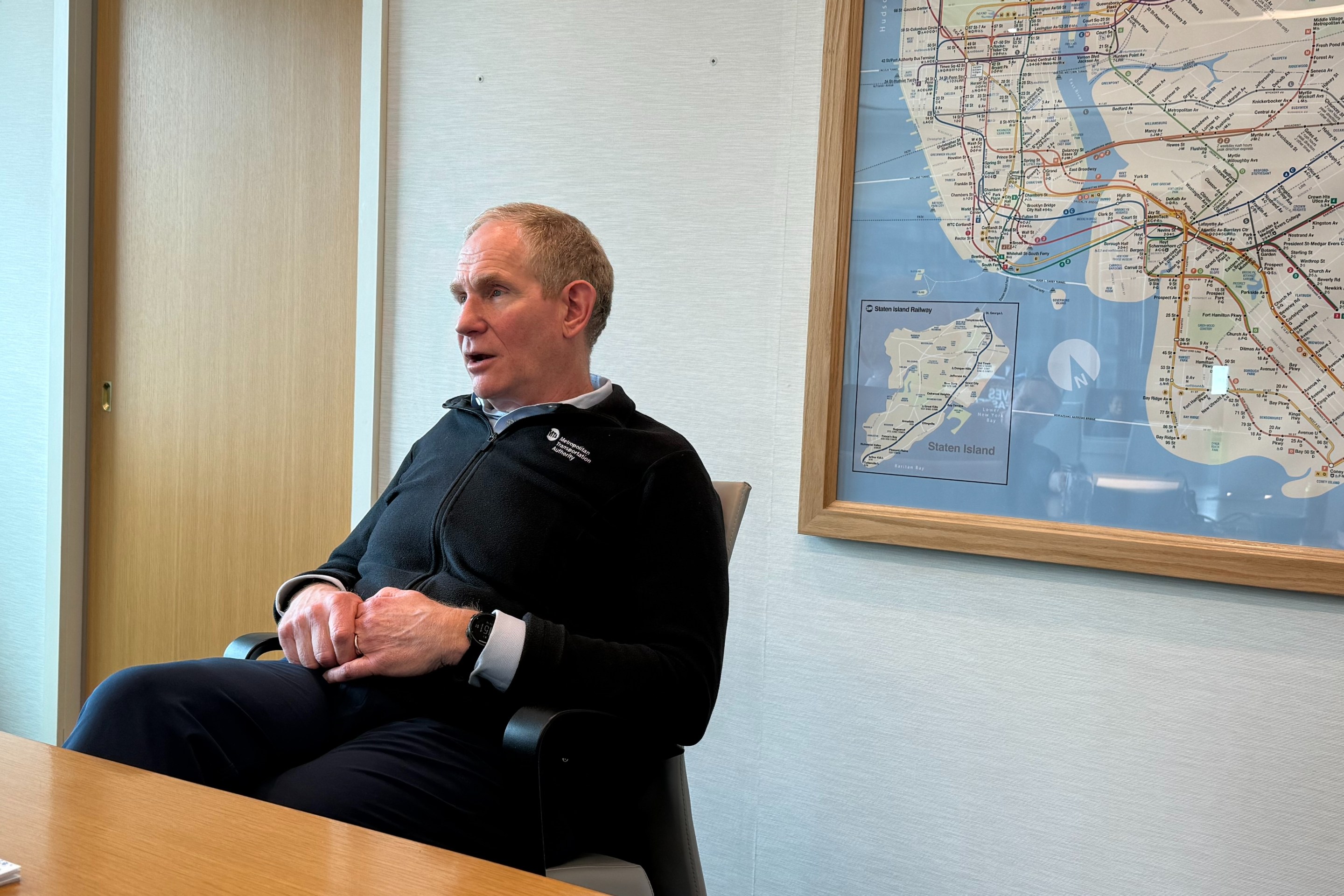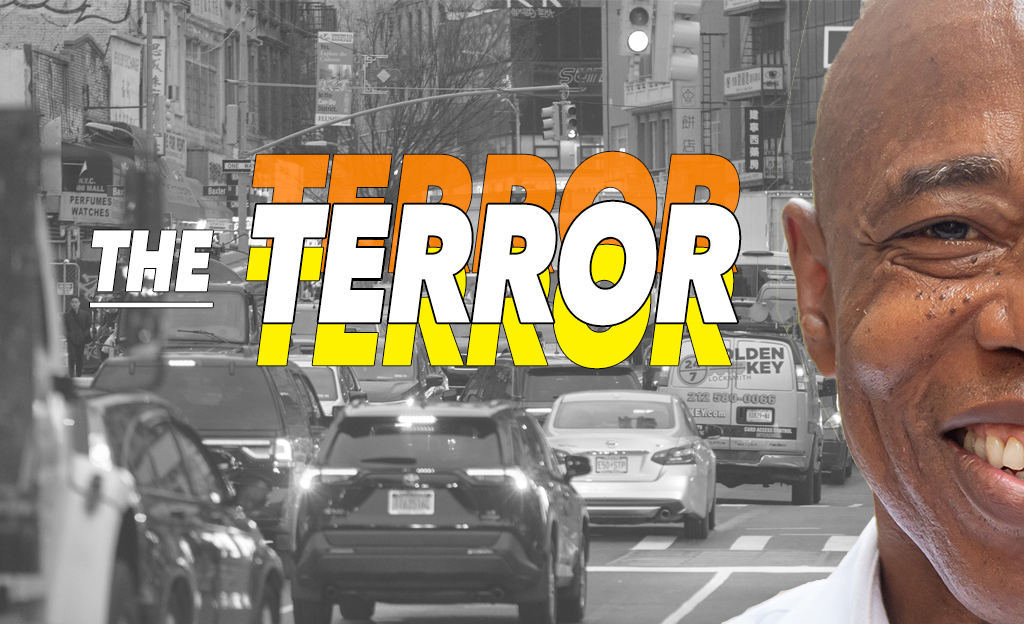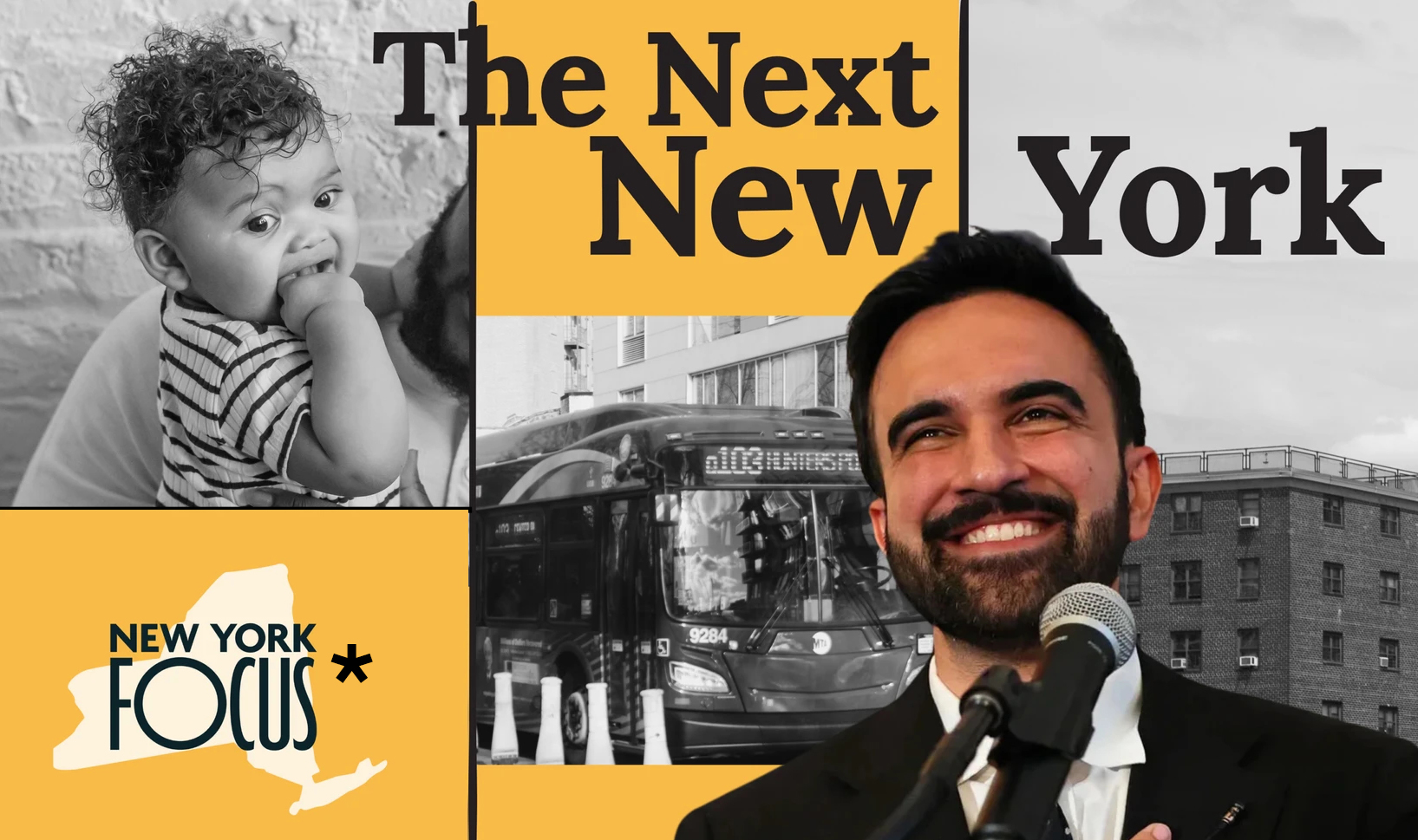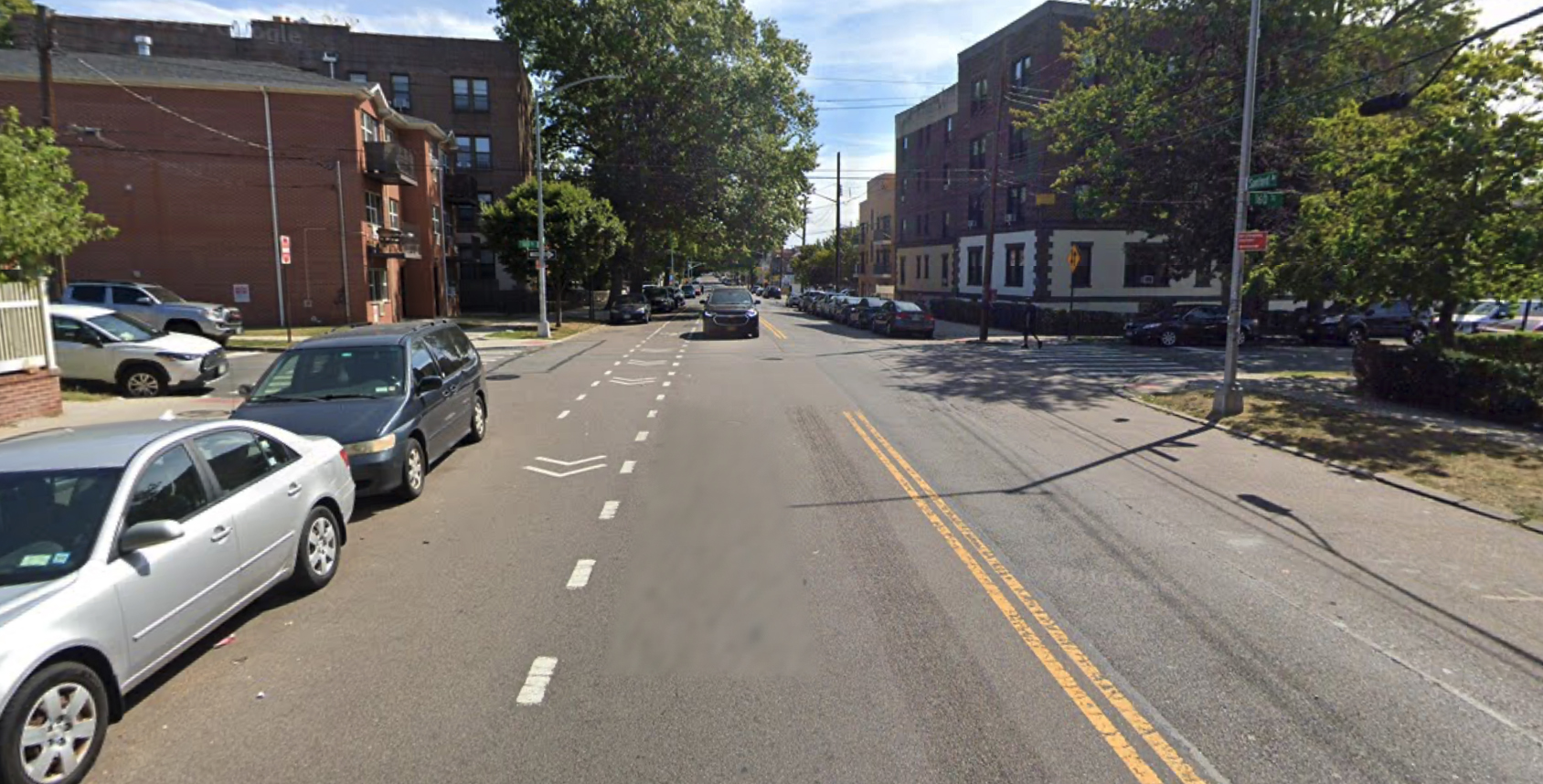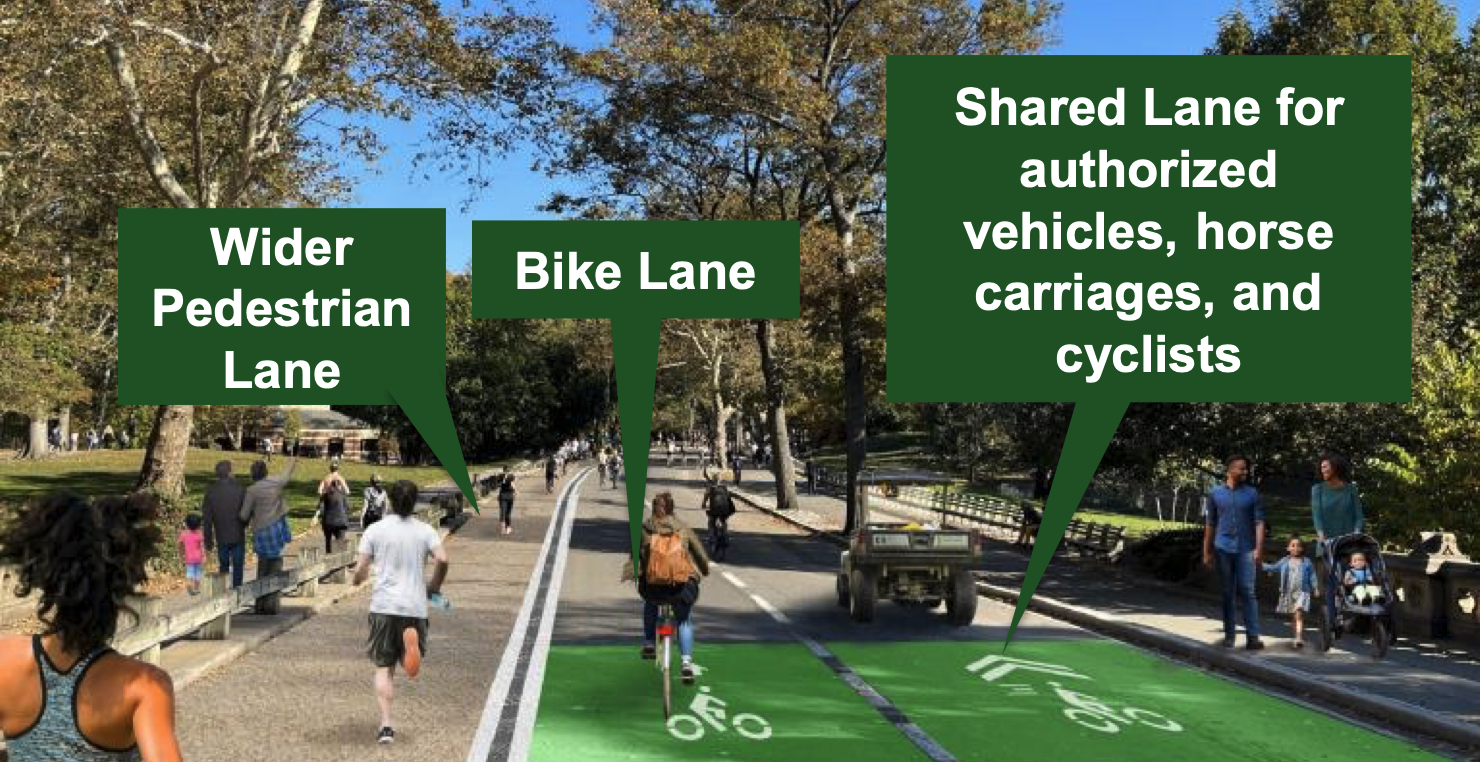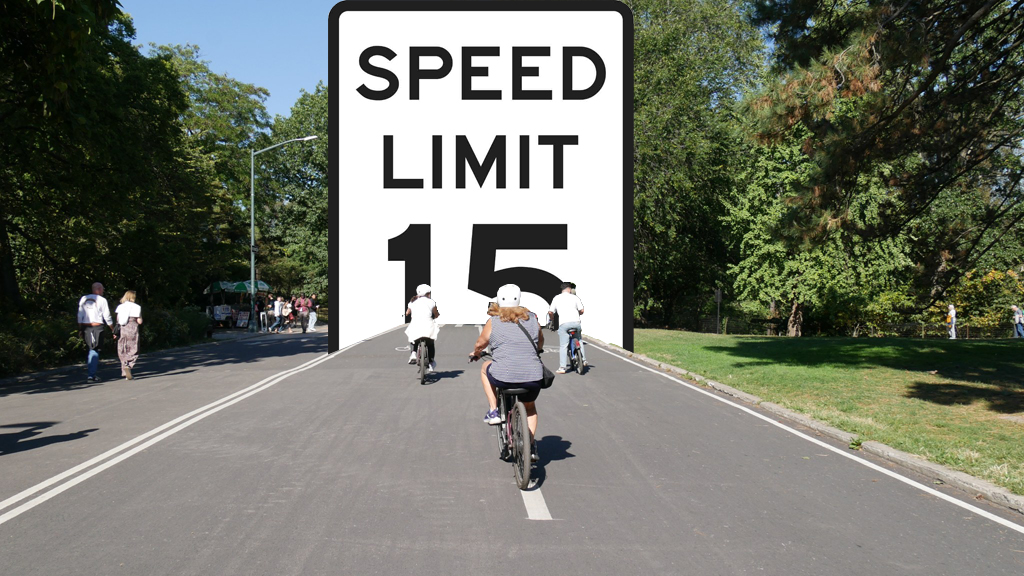
Worst City Agency: The NYPD. If they're in a good mood, they'll summons you for no apparent reason. If they're in a bad mood, they'll body slam you off your bike. They drive recklessly through city parks in their off-duty hours and park their vehicles in bus lanes, bike lanes -- pretty much wherever they want. If you're hit by a car while walking or biking in New York City? Don't waste their time. If you're still breathing, they're not interested. If you're dead, they'll probably just call it an "accident." Maybe they'll even blame you after taking witness testimony from no one else but the driver of the vehicle that killed you.
NIMBY of the Year: All in all, it was a tough year for the not-in-my-backyard crowd. Despite their occasional protests, New York City's streets and neighborhoods continued to improve for pedestrians, cyclists and bus. Still, there were some standouts:
Manhattan Community Board 4 member Allen Roskoff wins an honorable mention for arguing that Chelsea's gay community would no longer "feel at home" on 8th Avenue because of DOT's new, separated
bike path plan.
In Windsor Terrace, Randy Peers, Alvin Berk and Assemblyman Jim Brennan earn special commendation for trying to argue that routing motor vehicle traffic through Prospect Park is actually good for the environment.
City Council candidate Isaac Abraham and some members of South Williamsburg's Hasidic community also win an honorable mention for their contention that the new bike lanes on Kent Avenue -- installed with overwhelming Community Board approval following a painstakingly inclusive, decade-long community-driven process to create a Brooklyn waterfront greenway -- would bring too many scantily clad women through the neighborhood. Abraham showed the kind of leadership he'd bring to the Council when he urged his fellow motorists to harrass and endanger Williamsburg cyclists.
But the hands-down winner of our coveted NIMBY of the Year award is Sean Sweeney of the SoHo Alliance. With bike, bus and public space improvements proliferating throughout Lower Manhattan, Sweeney had a busy year trying to maintain his neighborhood's traffic-choked status quo. Though his protests of the Prince and Grand St. bike lanes have gone nowhere (thusfar), he managed to kill "the Department of Tyranny's" proposal for a car-free Prince Street weekend trial project, in part, by raising the ominous specter of neighborhood streets overrun by mimes. Well played, sir! You may disagree with Sweeney but you've got to respect him for being a hardworking neighborhood activist. He's also sporting enough to mix it up in the Streetsblog comments section. For all of that and, I'm sure, much more in 2009, Sean Sweeney (below) is our NIMBY of the Year.

Rarest Sighting: The NYPD ticketing bus lane violators on Broadway. As for the 34th Street bus lane? No such luck.
Best Transportation Policy Reporting: PBS's Blueprint America series. If only more transportation journalism received funding from the Rockefeller Foundation instead of the auto industry.
Saddest Excuse for Journalism: When it came to the two biggest
transportation stories of the year -- congestion pricing and the MTA's
canyon of a budget gap -- New Yorkers were not particularly well served
by their local media. Of all the reporters that accepted Richard Brodsky's populist claptrap as gospel or zeroed in on $30,000 in travel perks for the MTA Board as the agency stared down a $1,200,000,000 deficit, Fox 5 reporter John Deutzman stands out. Deutzman is the brave soul who ambushed MTA chief Lee Sander
while he was getting a shoe shine at Grand Central and peppered him
with questions about his personal commuting habits. Just when you
thought the level of discourse about MTA finances had already reached
rock bottom.
Most Memorable MTA Moment: MTA Board member David Mack,
a well-to-do Long Island real estate developer, essentially says that
mass transit is an "inconvenience" fit for "common people" -- with a
New York Times reporter in the room.
Most Disappointing City Agency: Amanda Burden and the Department of City Planning win for their laissez faire attitude on Brooklyn's "New Fourth Avenue and their near total lack of attention to parking policy, particularly in Hell's Kitchen.

Most Schizophrenic Bloomberg Administration Moment: Three months after his transportation agency rolled out its Sustainable Streets plan, Mayor Bloomberg endorsed a big box store and 2,300-car garage for Manhattan's west side.
Best Policy Paper That You Probably Didn't See Because They Released it at the End of August: Suburbanizing the City,
Transportation Alternatives report studying the impact of off-street
parking requirements on traffic congestion. Conclusion: "If New York
City maintains current parking policies, the traffic generated by the
addition of new off-street spaces will likely exceed a billion miles
per year by 2030."
Best City Agency Strategic Plan: It's got to be the Department of Transportation's Sustainable Streets because, as far as we know, no other city agency has a strategic plan.
Most Disappointing City Council Member: Until a few weeks ago, Bill de Blasio was a shoo-in for this category thanks to his refusal to back congestion pricing despite its promise of less traffic and cleaner air for his predominantly car-free constituents. But Alan Gerson made a last-minute surge, taking the lead when word surfaced that he would introduce a bill to give "Council and Community input into street reconfigurations." Gerson had been known to at least show up for a photo-op in support of bike and pedestrian improvements, but has now apparently cast his lot with a livable streets backlash driven by Lower Manhattan's NIMBY contingent.
